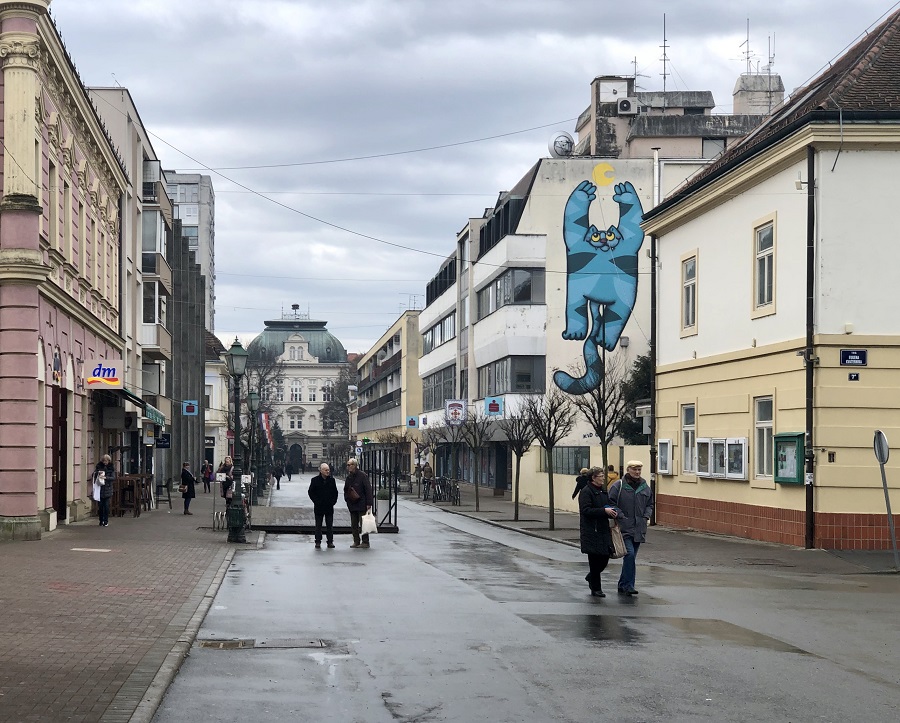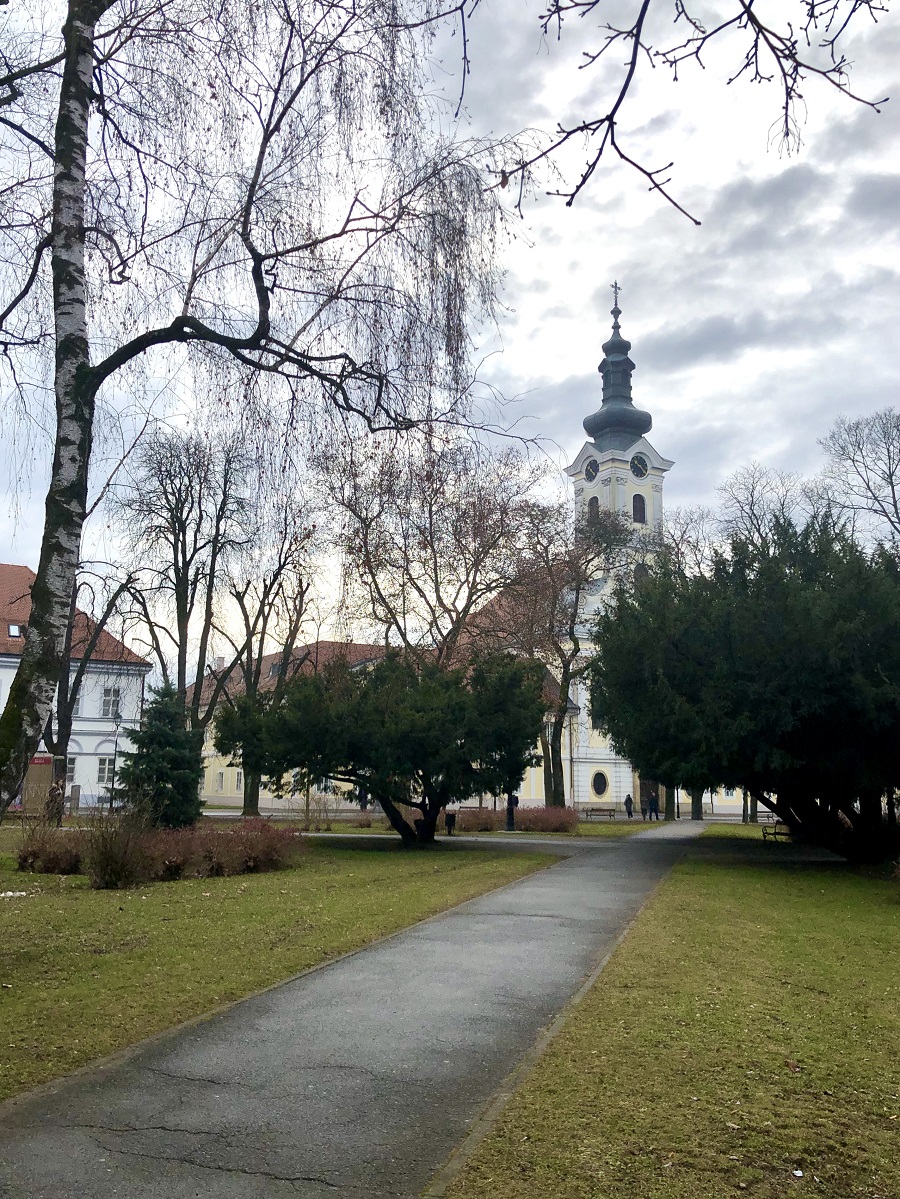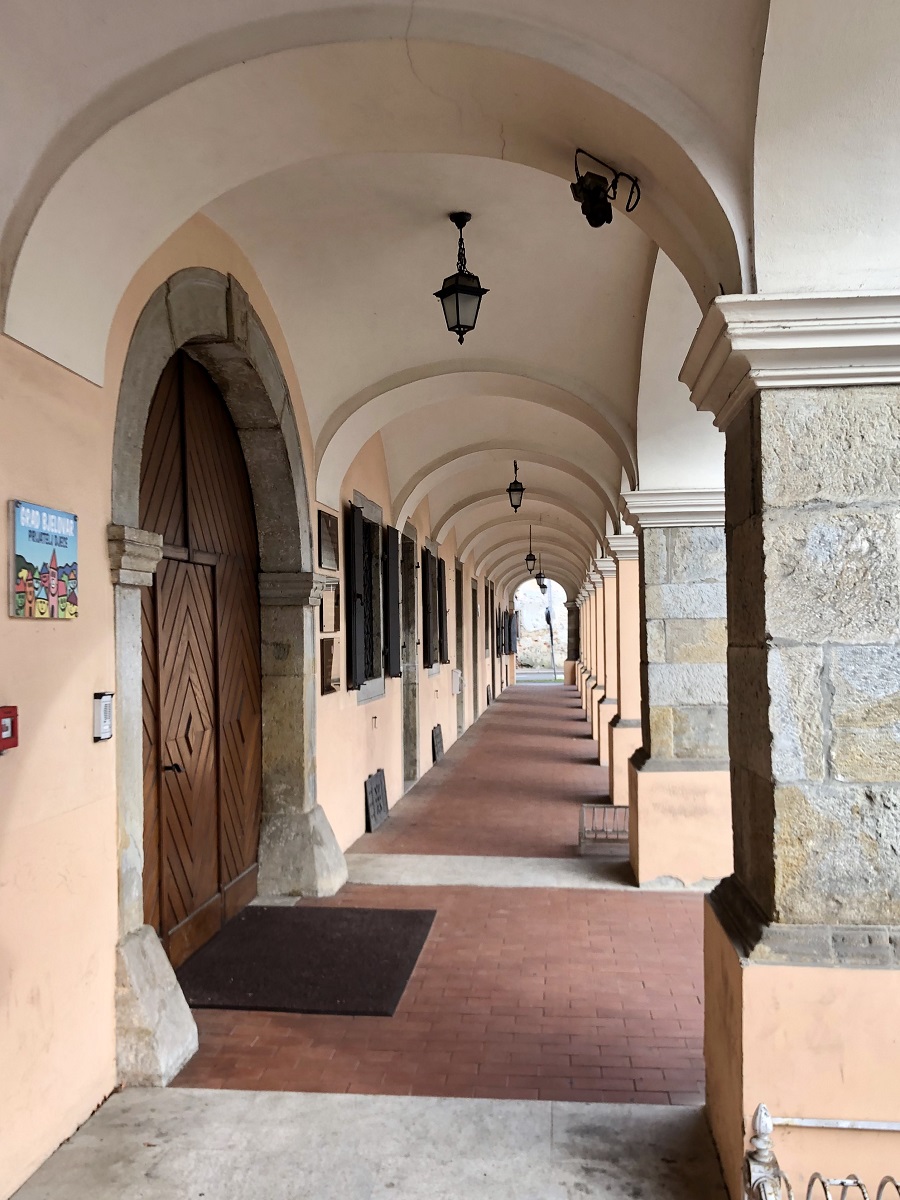Croatian Presidential Candidate Embraces Bjelovar Seed of Transparency in New Party Launch
March 5, 2020 - There is a virus spreading slowly through Croatia which is not corona - the healthy virus of transparency whose Patient Zero is in Bjelovar.
It is always nice to see something healthy at its early stages and watch it grow. And grow. And grow.
While most of the world is following the spread of coronavirus, there is another virus which has started to spread slowly, much more slowly, in parts of Croatia. It started in the city of Bjelovar, one hour east of Zagreb, and it has already spread to the Adriatic coast, to Omisalj on the island of Krk, as well as closer to Zagreb to the west - Sveta Nedelja. And this new virus, which is actually very healthy, is set to expand all over the country.
It is the virus of transparency and a better and more accountable future for Croatia.
As we recently reported on TCN, the city of Bjelovar has become the first city in Croatia to embrace the digital age, make all expenditures transparently available, and reduce local taxation while increasing tax revenues. The Bjelovar revolution really is quite incredible in the context of modern Croatia, and you can read more about my inspiring day out in Bjelovar when I first met Mayor Dario Hrebak.
I was in Bjelovar again this week for what must have been a first in Croatia - a conference on transparency. Along with Hrebak and his Bjelovar team was the Mayor of Omislalj. Along with Sveta Nedelja, here are the first three communities in Croatia to explore the path of transparency and digitisation. You can read more about the transparency conference which took place in Bjelovar this week here.
But is the virus of transparency spreading quicker than we think? A rather unlikely bedfellow supporting the Bjelovar model appeared this week, as former Presidential candidate Miroslav Skoro - who came a very close third to Kolinda Grabar-Kitarovic in the first round - hailed transparency and the Bjelovar model as the way forward:
''When you have a state budget, you need to take something from somewhere in order to provide any sort of relief. Better and more transparent business is needed, just take a look at the City of Bjelovar,'' he explained, adding that every citizen should know how every kuna from the budget is spent.
The virus of transparency is spreading in Croatia, slowly but surely. How refreshing to see that some viruses are actually very healthy.
For more information on the Bjelovar transparency revolution, follow the dedicated TCN Bjelovar section.
Transparent Bjelovar Gives Rest of Croatia Food For Thought
A modern and transparent Bjelovar is a shining example for the rest of Croatia. From lowering surtax to making the city administration actually work for the residents, what this continental Croatian city has done should be looked upon as a drawing board for the entire country - which is lagging behind severely.
As Vecernji list/Poslovni Dnevnik/Lucija Spiljak writes on the 3rd of March, 2020, the now transparent Bjelovar has reduced surtax, the city government is fast, efficient and more clear, has nothing to hide, and wants citizens to know what they are paying into the city budget, why, and exactly where it's going.
Bjelovar is the most transparent city in all of Croatia, which has shown the entire country how to accelerate the development of entrepreneurship and increase employment, with a free application through which all citizens have access to payments from the budget of the City of Bjelovar. This was precisely the reason for the conference entitled How Transparency Affects Entrepreneurship which was held by the City of Bjelovar in cooperation with Vecernji list and Poslovni Dnevnik at the Bjelovar Cultural and Multimedia Centre.
On this occasion, Vladimir Nisevic, Editor-in-Chief of Poslovni Dnevnik, said that there is a link between transparency and the economy and that it needs to be nurtured.
"Businessmen and citizens want to know how public money is being spent, and that should be the rule in Croatia. Therefore, us at Poslovni Dnevnik and Vecernji list want to change society and send clear and important messages about the inevitable connection between the economy and transparency,'' said Nisevic during his opening speech.
The Mayor of the City of Bjelovar, Dario Hrebak, emphasised that they were no longer the only transparent local self-government united in Croatia, but that the municipalities of Omisalj and the City of Sveta Nedelja had also joined them on that highly commendable list.
He also recalled the term ABC, which means ''Anything but Croatia'', referring to the numerous foreign investors who were bypassing Croatia due to the dreadful bureaucracy, excessive taxes and corruption.
"If we send a strong message to citizens who have the right to know how politicians spend their money, then we're sending out a strong message that in Bjelovar, the kuna is worth more than any other kuna invested in Croatia. The emphasis is placed on transparent behaviour and the fight against corruption. We've reduced surtax, the city government is fast, efficient and more clear, we've got nothing to hide and we want our citizens to know what they are paying into the city budget for,'' stated Hrebak when discussing the commendable transparent Bjelovar, before continuing:
''Therefore, we'd like to invite investors to come and invest in the City of Bjelovar, because theirs, that is, your kuna, is worth more here than it is anywhere else in Croatia,'' Hrebak said, adding that the modern economy cannot exist on the basis of the bureaucratic model of the last century.
Then, Helena Schmidt, a partner in Deloitte's tax advisory department, presented the current state, challenges and prospects for the future of local and state tax levies.
In a one-on-one interview, Vladimir Nisevic and Davor Huic, president of the Lipa Taxpayers Association (Udruga Lipa), discussed ways to spend public money and implement structural reforms for an efficient system that actually works in the service of citizens.
Huic explained that since he had decided to engage in public activities back in 2014, when the Lipa Association initially started its operations, he himself decided to comment on policies and make his view public, especially after he added that three governments had reacted incorrectly to the economic crisis which for Croatia meant the loss of 150,000 workers and then a demographic crisis.
''During the time of Tim Oreskovic's government, which didn't address ideological issues, I was an advisor and the focus was on fiscal consolidation, the economy and stimulating economic growth. The current Croatian government is lucky and Plenkovic and Maric are doing good things, but that isn't enough. It's no longer just about taxes but also about the quality of service.
Well, in Zagreb, where the surtax stands at 18 percent, schools don't have soap. That's the whole picture of the Croatian public sector because it takes a lot, but it gives very little,'' Huic said, adding that people who exercise positions of public authority have an obligation to citizens to be accountable and responsible.
He also believes that Croatia is facing a lack of democracy and democratic awareness.
''We insist on lower taxes so that we're left with more money for other things, we want to change and specify the relationship between taxpayers and the authorities. Cities have introduced transparency, started cutting taxes and this is an indication that the climate is changing. They've recognised the citizens' need for a transparent policy. Political elites can't just dispose of public money as they wish, but they should spend it effectively and for the public good, which isn't the situation at the moment,'' he warned.
He also used the opportunity provided by the now transparent Bjelovar to touch on the often needlessly confusing topic of health insurance in Croatia, which he says is universal and that actually few people pay in, but nobody controls or rationalises the costs.
"There should be service prices to integrate the public and private parts, including vouchers. Regarding pension insurance, regulation is needed because there are various legal ways to ''get'' a pension, and of the 1,200,000 pensioners, a large proportion haven't worked full-time,'' he warned.
He thinks there are two approaches: to wait for people with a mindset like himself and transparent Bjelovar's Mayor Dario Hrebak, or for local government units to digitise the public administration, such as, he said, in Sveta Nedelja. where it's possible to evaluate people's work in the public sector.
''The Government of the Republic of Croatia has no right to adopt measures that slow down Croatian growth and therefore it makes no sense to adopt measures that reduce our competitiveness. The Lipa Association will demand from all political parties and impose that the central government make the state budget transparent and that the local self-government units introduce a measure on the example of Bjelovar,'' concluded Davor Huic.
After the interview, Deputy Mayor of the City of Bjelovar Igor Brajdic gave a presentation on the development of the economy in the now transparent Bjelovar, referring to the general measures for stimulating entrepreneurship, both realised and planned projects, and the connection between an open budget and transparent spending with the general progress of the economy.
Make sure to follow our dedicated politics page for more on transparent Bjelovar.
As Revenues Continue to Rise, Bjelovar Mayor Hints at More Tax Cuts
February 3, 2020 - More Bjelovar tax cuts appear to be on the way, as Mayor Dario Hrebak announces more rising income after halving local tax last year.
Writing online can be a lonely business. With no colleagues in the office to joke around with, one has to look for other ways to get one's kicks during the working day.
One of my new things is to write about something positive in Croatia and wait to see how long it takes for someone to attack that positivity with a negative comment. As I said on my recent interview on Romano Bolkovic 1 na 1, Croatians have a default mentality which is negative (of which more in a bigger article coming soon), and the saying that a Croatia can forgive you anything but success is something I have found to be very true in my experience.
And no matter how good the story, some people will look to find the negative, even if it doesn't exist, and waiting to see what these merchants of doom have to say is how I get some of my kicks on those lonely days online alone.
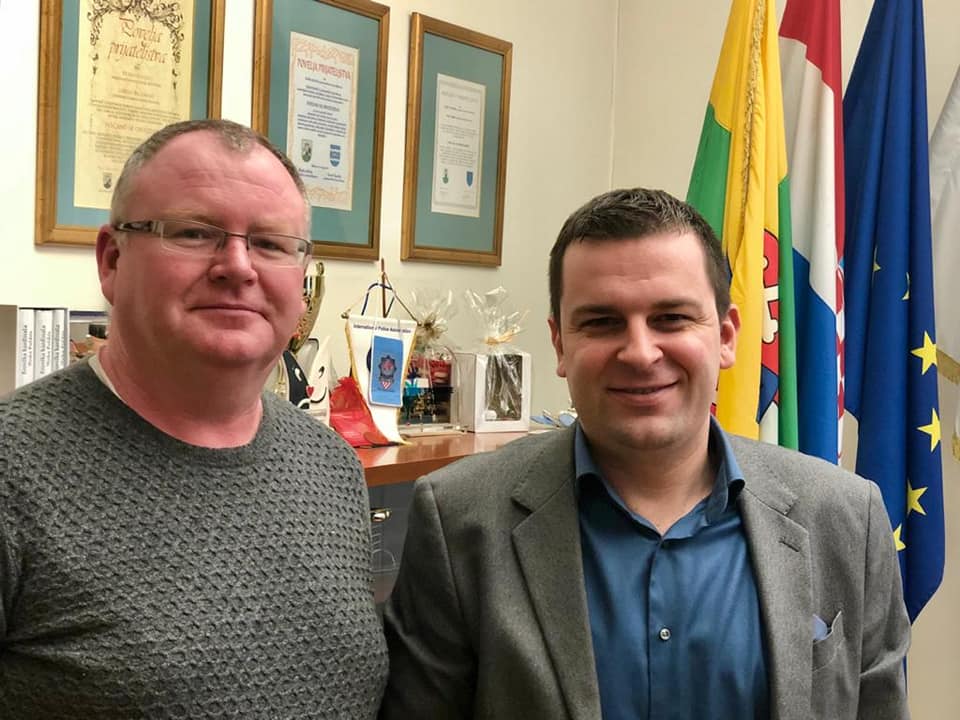
Last week we brought you an in-depth feature on the Mayor of Bjelovar, Dario Hrebak, who made the rather unusual claim for a Croatian official - My city is corruption-free.
Hrebak is certainly doing things a little differently. He was the first mayor to introduce digitalisation into his administration, the first to make transparently available all expenditures down to official lunches, slashed local tax from 12% to 6%, and reduced the size of his administration by 10%, partly as a result of the digitalisation and efficiency savings. The payroll used to take three days to do, now it takes just 3 hours. And the tax reduction seems to be stimulating something, for he reported a couple of weeks ago that the tax cut had stimulated some 250,000 extra tax revenue into Bjelovar's coffers in the first 17 days of this year, compared to the corresponding period in 2019.
What's not to like about this one? I knew it wouldn't be long until I found out.
"This is all just PR. Hrebak is all about PR, nothing else."
I smiled. During our interview, the mayor had told me that this would be a reaction to anything I decided to write. His answer was that a good story attracts good PR, and the reality is in the numbers. He released more numbers today on his Facebook page.
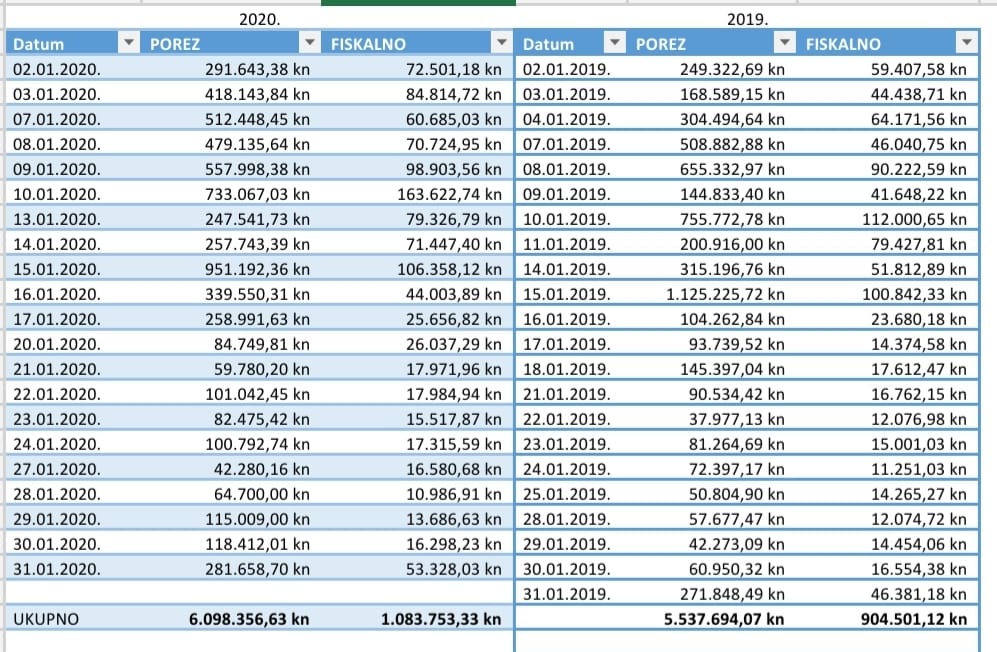
As things stand now, it was no coincidence. Although we reduced the surtax by half, although in January 2019 it was one working day longer, we raised HRK 740 thousand more. We'll wait for February, but right now I think we can announce another cut in June.
I can't comment on Hrebak's PR and how it works, as I didn't ask, but this is how it worked in my case. I had never heard of him until a couple of weeks ago. Hearing about a mayor who was promoting digitalisation, transparency, taxation and a smaller administration in Croatia seemed a very interesting story for TCN to cover. I got his number, sent him an SMS and was in his office for an hour later, before I wrote my article Seeds of Change: My City is Corruption-Free, Claims Croatian Mayor.
As the man said, a good story attracts positive PR.
So who else would like to live in a town or city which has transparency of expenditure, digitalised services that you can access in the comfort of your own home rather than going to wait in line in an office, reduced taxes to stimulate business, and reduced expenditure on adminstration so that more can be spent on the community?
If that is something you would like, why not ask your own mayor when this level of transparency and progress will be coming to where you live?
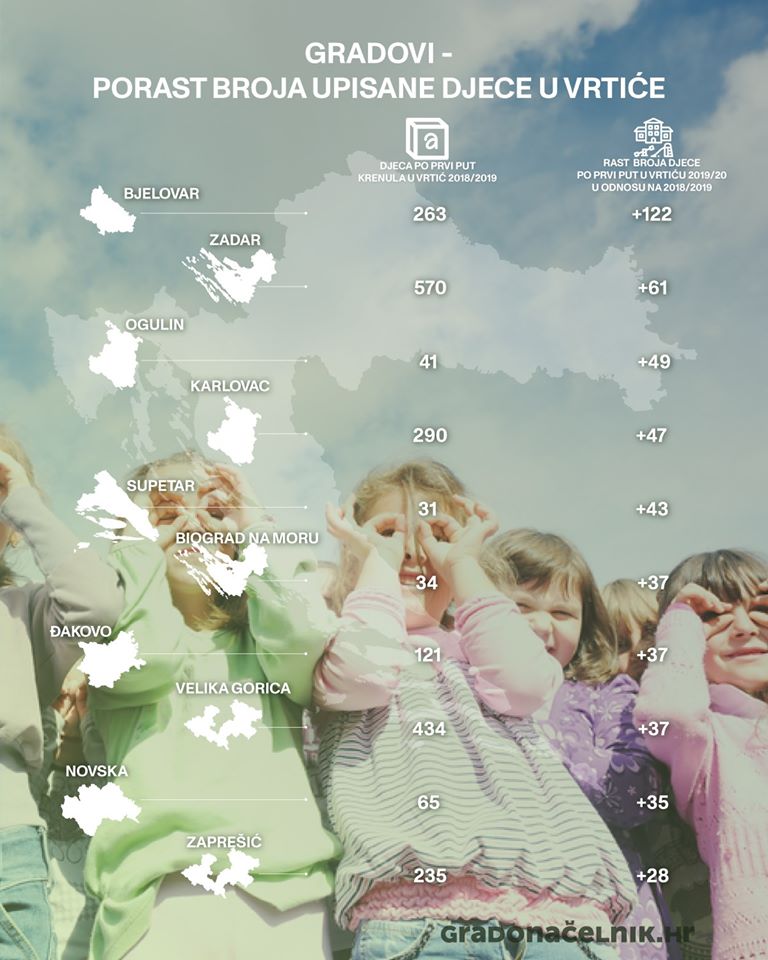
Maybe there is something in the water in Bjelovar, as Hrebak also announced some more good news in addition to the Bjelovar tax update - the city has the largest growth of young kids inscribed in kindergarten in the whole country.
Now all I have to do is publish this, sit back and wait for the negative Croatian mindset to tell me why that is a bad thing.
To follow the latest from Bjelovar, follow the dedicated TCN section.
Seeds of Change: My City is Corruption-Free, Claims Croatian Mayor
January 29, 2020 - Is change really possible in Croatia, a society where corruption is rife wherever you look? Meet Dario Hrebak, the dynamic young Mayor of Bjelovar, who believes not only that it is possible, but that his city is free of corruption.
Living on Hvar for 13 years, eastern Croatia was for many years a total mystery. The only places that you ever heard about were Vukovar and Osijek, and I maintain that many people living in Croatia today only have a very sketchy understanding of what there is to see and do once you head east of the capital. Which is a pity, for people are really missing out. As we reported late last year, you can have an awful lot of fun heading on east for a weekend.
Over the years, my knowledge of the east has improved considerably, but there was still one sizable town that I knew almost nothing about, one which I could not with certainty place on the map.
Bjelovar.
A city of more than 40,000 people, I knew almost nothing about it apart from the fact that its handball team had once been the Kings of Europe almost 50 years ago. But Bjelovar has been very much on my radar in the last few weeks, as so many people told me the same thing when I asked them for examples of non-corrupt politicians in Croatia, and for examples of good governance at the local level. Of politicians serving the public good rather than linking their own pockets.
Dario Hrebak, the Mayor of Bjelovar, Member of Parliament, and President of the HSLS Liberal Party.
The stories I was hearing were scarcely credible in the modern Croatia. His was the first local administration in Croatia to introduce digitalisation, whereby certain services could be done online more efficiently and comfortably than having to queue and take up an official's time for a function that could be done online without human interaction. All the costs of the administration became publicly available, even down to the cost of a lunch on official business. As part of the efficiency drive, he is the only mayor to reduce the staff of his administration - by 10% - with another 10% in the pipeline by the end of his mandate. And while he could not control taxation at the national level, he slashed local tax from 12% to 6%, with a plan to take that down to zero by the end of the year. The result? More than 250,000 kuna MORE in the administration's bank account in the first 17 days of 2020, compared to the same time last year.
Digital, transparent, pro-business and entrepreneurship, not afraid to tackle the waste in the administration. All this happening in modern, corrupt and unreformable Croatia. Could this Dario Hrebak be an agent of change? I had to meet him.
He responded promptly to my text message, complimented me on TCN which he knew well, and invited me to visit him in Bjelovar.
It was quite a meeting.
"Meetings, meetings, meetings," he began warmly, clearing the folded daily newspaper from his desk. "So many meetings and no time to even read the morning newspaper headlines."
"But you had time for your morning coffee, surely? Croats cannot function without their coffee," I replied.
"Well, no, not even that, as you can see - just this half-finished mug of tea."
It quickly became apparent why there was no time for newspapers and cups of tea in the world of Dario Hrebak - he was a man on a mission, extremely focused on his objectives and next moves. An active member of liberal parties for more than 15 years, including the European Liberal Youth movement, through which he travelled extensively, picked up best practices from other countries, and widened his mindset beyond the more socialist upbringing of his peers in this post-Yugoslav state, Hrebak had clearly had enough of corruption and was determined to introduce a regime of transparency and progress in his city.
These are words that one hears a lot in Croatia, but they are not followed up on.
Bjelovar and Dario Hrebak are different. Here's why.
Of the many obstacles to real change in Croatia, one of the most intransigent is the relationship between voters and those in power. Those in power depend on getting enough votes to continue their private gains from the public purse, and they will do anything to stay in power. This includes giving jobs of little or no value to unqualified but loyal people. A job for life in exchange for a vote for life. Or rather votes for life. If the father has a nice job in the administration in this sea of unemployment, all the other voters in the extended family are going to make sure it stays that way come election time. This is not a practice unique to Croatia, of course, but it has become an art form, and until that cycle is broken, real change will not be possible, bloated administrations will continue to grow, more war veterans will be added to the list, and taxes will have to rise so that the shrinking number of honest workers and entrepreneurs can contribute the money to pay for all this.
It would be political suicide to mess with that system. Reducing benefits, abolishing unnecessary jobs, thereby cutting those previous jobs and risking the multiple votes in the process.
Dario Hrebak is attempting a full-frontal assault on the system, betting that efficiency savings, better quality of life, transparency, economic growth and real jobs will win the day.

He has made a very impressive start, as the numbers show. When he started, his budget was 130 million kuna, then 148 million in 2018, 180 million last year, and it will be over 200 million this year. As the income grows, he wants to keep the expenditures on the same level, while pouring the surplus revenue into tax reductions, projects, and stimulating the economy. Bjelovar was bottom of the list for extracting EU finds when he started, now it is in the top 10 towns in Croatia.
His small digital revolution is still largely in beta mode, but there are already concrete results, and he gave me a couple of examples. The monthly payroll used to take the employee three days to perform. Now, with much of it digitised, that process is performed in just three hours.
There are now ten concrete services that can be performed online via the dedicated app which has been created. New-born babies are entitled to 1000 kuna from his administration. Previously, that would have involved a visit to the office from the young mother, forms to be filled in, another meeting, period of checking and approval, and so on. Now that can all be done from home online, without all the stress of taking the young child around the famous Croatian bureaucratic system.
The plan is to put almost all services online in the same way. Quicker services, less public administration needed, more efficient procedures, and all without the need to leave the house and queue to get the blessing of a grumpy official.
Standard practice in countries like Estonia. Absolutely revolutionary for Croatia.
One of the first acts he did as mayor was to cut social welfare where it was not needed. Bjelovar has an unemployment rate of 6%, around 200 people. Rather than continue with the generous benefit for the unemployed, he announced that he would be happy to pay it to those without a job who reported for work at his administration, where they would be put to work as required. Of the 200 contacted, just four showed up for work, which meant that 196 had their benefits cut. More money in the administration's budget, less cash simply given to people who did not want to work. More votes under threat as vested interests are challenged.
"If someone genuinely needs help, an operation or something, then the city is ready to help absolutely," said Hrebak. "But why should the city cover someone's laziness? This whole system was created by HDZ and SDP, which are both social parties. We have literally made invalids out of people. Sadly, the most important question in Croatia today remains - are you left or are you right?"
The mayor is putting a lot of faith and investment into IT and attracting foreign investment. There is a tax-free model for foreign investors regarding local taxes (he cannot influence tax policy at the national level) - land for one kuna, communal tax one kuna, communal contributions one kuna, free space, electricity and other utilities. Bjelovar has the biggest startup contest in Croatia, with prize money of 100,000 kuna, and judges from the entrepreneurial and banking worlds. The University of Bjelovar's first IT graduates have all found employment.
And the investors are coming. TCN recently reported on the first geothermal power plant in Croatia, which was built by Turkish investors with an investment of over 40 million euro under a concession. Hrebak says the return on investment will take just six years, and also that there are other thermal water sources which can provide three more plants. His plan is to build a spa in one of these locations with city money, then find an investor to build the second hotel the town so badly needs. It will be located just 50 metres from the exit of the new stretch of motorway which will open in 2-3 years - and eventually connect Bjelovar with Budapest, making this an attractive spa stop for Hungarians heading to the coast.
He is disappointed, but not surprised, that no other town has followed his lead, despite many fine words about fighting corruption.
"I know 5-6 young mayors, and I am sure that they are not corrupt. But despite the words, they have done nothing. The reason is the system - they are scared of losing those votes which will cost them power. This is the cycle we have to break in Croatia, in order to progress."
"This is a long, long fight, a marathon. The only way to make this change is through patience and persistence. We will keep on trying, delivering excellent services, cutting tax and administration, and providing the best incentives for foreign investment. We are small, with just 1% of support, but we are trying. My city is corruption-free."
And, as he went to take a first sip of the cup of tea that he made several hours ago, I concluded that I for one would not bet against Dario Hrebak expanding his digital and transparent revolution far beyond the borders of Bjelovar, especially if international institutions and the EU took a greater interest and offered support.
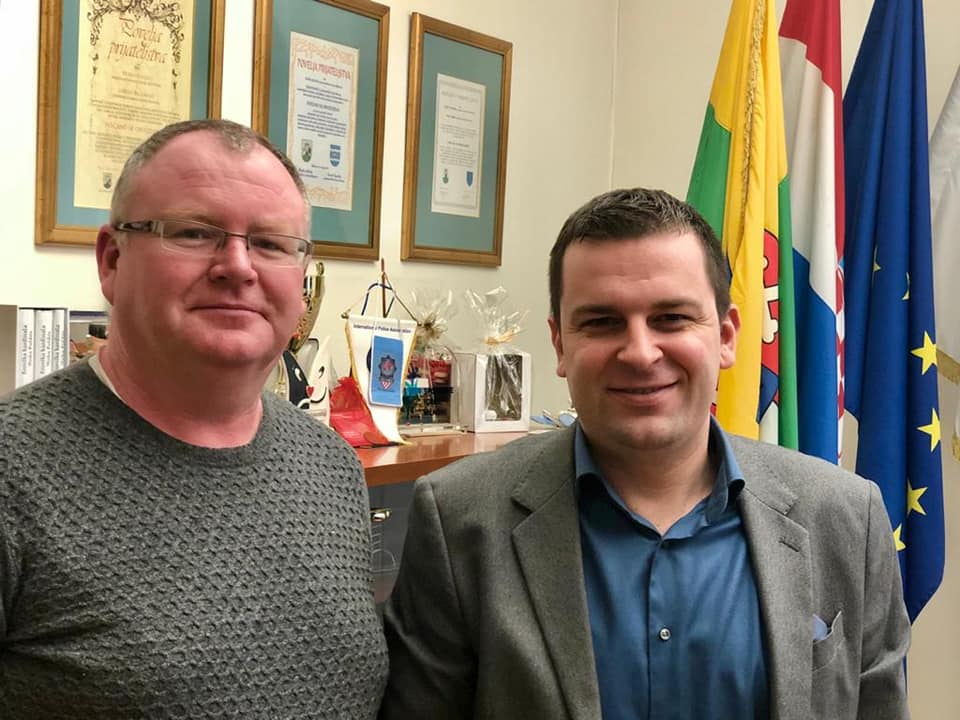
it is a topic we will be returning to very soon. For the very latest from Bjelovar, check out the dedicated TCN section.
Croatian Property Price Data Highlights Dramatic North-South Divide
The north-south divide is a common situation in many European countries. The United Kingdom is one notable example, in which the south absorbs an enormous amount of money as the north tends to get mere scraps. This is more or less down to the fact that London is situated in the south of the country, but what then, with its capital in the north, is Croatia's excuse? Tourism and the sea are safe bets... A look at Croatian property prices reveals some shocking statistics.
As Novac writes on the 11th of January, 2020, the dramatic difference between the north and the south of Croatia is reflected in the prices of family homes, according to the latest analysis of the Ministry of Construction and the Institute of Economics in Zagreb - "Croatian Real Estate Market Review 2018", which delves deep into the Croatian property market and the huge differences between north and south.
These are real transaction prices, so this analysis most certainly shows the real state of the estate market and Croatian property prices. In the continental town of Bjelovar, the lowest median price per square metre in a house was a mere 36 kuna. After that come Koprivnica (54 kuna), Virovitica (62 kuna) and homes in Požega-Slavonia County (86 kuna).
The most expensive square metre in a house at the median price was in Split-Dalmatia County (4,354 kuna), Primorje-Gorski kotar County (4,334 kuna) and Šibenik-Knin County (4,228 kuna). According to the analysis, it would mean that for the price of one 100-square-metre house in Split, one hundred houses of the same size can be bought in, for example, Bjelovar. An enormous, hardly comprehensible difference within one small country.
Could this really be so? This incredible difference in Croatian property prices seems truly remarkable, so Novac asked one of the authors of the analysis, Maruška Vizek, a scientist from the Institute of Economics. She explained that the data does indicate massive regional differences in Croatian property prices, but they can be even further magnified if the data from eNekretnine, the system from which they collected the sales contracts, isn't evaluated.
''In other words, it's possible that intentionally lower prices than market prices are put into purchase contracts to reduce the amount of property sales tax, and then we see even greater price differences between regions,'' she explained.
Concerning apartments, the same analysis states that back in 2018, 23,736 apartments and flats with a total value of 13.2 billion kuna were sold. Taking first place with a median price of an apartment/flat of 12,158 kuna per square metre is, rather unsurprisingly, Dubrovnik-Neretva County, followed by Split-Dalmatia County with the price of 11,669 kuna and then the City of Zagreb with the price of 9,459 kuna.
Median apartment/flat prices in other counties ranged from 2,967 kuna per square metre in Vukovar-Srijem County to 5,840 kuna in Osijek-Baranja County. This would mean that for one square metre in an apartment/flat in Dubrovnik-Neretva County, you could purchase 4.1 square metres in Vukovar-Srijem County, since the difference in the median price per square metre between the two counties is as high as 9.191 kuna.
Make sure to follow our dedicated lifestyle page for more on Croatian property prices.
VIDEO: Watch Train Leave Bjelovar Train Station on New Tracks
We recently reported on the train from Bjelovar to Zagreb which runs on Croatian Railways' newly opened tracks. The train ride from the city in Bjelovar-Bilogora County to the Croatian capital should now take a mere one hour, and if you've ever taken a train anywhere in Croatia, you'll know that that's something to be excited about. However, of course, in true Croatian style - the train barely managed to leave Bjelovar train station without encoutering a few little issues.
As Novac writes on the 15th of December, 2019, on the 15th of December at 10:52 in the morning, the first train on the new railway line, which are otherwise the very first railway lines in Croatia to be built after as many as 52 years, departed from Bjelovar train station, heading in the direction of the bustling Croatian capital city.
However, as previously touched on, in true Croatian style, the train couldn't simply just leave Bjelovar train station and embark on its journey to Zagreb without encountering at least one problem. The new train rather anticlimactically stopped in its tracks (literally) just 200 metres after leaving Bjelovar train station owing to some minor technical difficulties, with some blockages reportedly triggered. However, this rather embarrassing situation was quickly remedied and the train continued running, according to a report from the local portal bjelovar.live.
The total value of the project, which was co-financed by the European Regional Development and Cohesion Fund, stands at a massive 258 million kuna.
This is a suburban train section, and the new railway will now allow for shorter journeys. As we reported in the article we linked above, it will now be possible to arrive from Bjelovar train station to Zagreb train station in one hour, a welcome alteration when compared to the previous two hours it took to travel between these two continental Croatian cities.
Watch the video of the train making its maiden journey below:
Make sure to follow our dedicated travel page for much more.
Zagreb to Bjelovar in One Hour: Croatia Railways Opens New Track
The train ride from Bjelovar to Zagreb via the new Sveti Ivan Žabno - Gradec railway section will be free of charge from December 15 until the end of the year, as a way to celebrate the opening of the new track in Croatia, the first after more than 50 years.
According to zagrebinfo on December 10, 2019 - the agreement on transport co-financing was signed on Monday by Damir Bajs, representing Bjelovarsko-bilogorski county, and the President of Croatia Railways Passenger Transport, Zeljko Ukić. The co-financing for the free railway ticket is at a fifty-fifty ratio, and will apply to all passengers who depart from Bjelovar station to Zagreb via the new Sveti Ivan Žabno – Gradec railway line.
Zagreb to Bjelovar Ticket Prices Reduced for 2020
“The project our county launched 20 years ago has finally been completed. The Sveti Ivan Žabno - Gradec line is one of the most valuable EU projects in this region of Croatia, and it will allow Bjelovar residents to enjoy a suburban-like commute time to Zagreb,” Bajs revealed.
He added that the new railway line brings Bjelovarsko-bilogorski county out of transportation isolation. "I am also looking forward to the new trains which will provide passengers with an enhanced travel experience," Bajs added.
Zeljko Ukić, President of Croatia Railways Passenger Transport, explained that, after free travel ends at the beginning of 2020, next year’s ticket price will be reduced by ten to 25 percent, since the journey from Bjelovar to Zagreb has been shortened by about 15 kilometers.
Zagreb to Bjelovar in 50 Minutes
“I believe that the new railway will mean a lot for the Bjelovarsko-bilogorski, Koprivnica-Križevci and Zagreb counties. The travel time to Zagreb has been reduced to one hour and 11 minutes. When construction is completed on the second track of the Dugo Selo – Križevci railway line it will be further reduced to 50 minutes," Ukić pointed out. He added that seven daily trains will run on the new Zagreb – Bjelovar route, while five will run on the route from Bjelovar to Zagreb. The existing trains will be equipped with air-conditioning, and we are introducing a tilting train. Passengers will certainly enjoy a much more pleasant travel experience, especially during summer months,” he added.
The new Sveti Ivan Žabno – Gradec line is just over 12 kilometers long, with construction costs totaling 240 Million HRK (32.3 Million EUR), with 85 percent of those costs covered by EU funds.
Follow our Travel page for more information on transportation infrastructure improvements in Croatia.
Geothermal Power Plant Opens Near Bjelovar, Largest in Continental Europe
As Poslovni Dnevnik writes on the 19th of November, 2019, the Republic of Croatia's first geothermal power plant, which is also the largest in continental Europe with binary technology, worth 325 million kuna in total, officially opened on Tuesday in the Bjelovar suburb of Ciglena.
The large Turkish group MB Holding has invested 325 million kuna in total in geothermal sources in Velika Ciglena to build a geothermal power plant that can supply as many as 29,000 households and employs ten workers.
The project also includes Croatian companies that have done more than half of all of the work, so the fact that the share of services and equipment procured on the Croatian market amounts to 220 million kuna, or 68 percent, was heard at the opening attended by MB Holding's CEO Muharrem Balat and Minister Tomislav Ćorić.
"Velika (Big) 1, the name we chose for this geothermal power plant, was not selected for no reason. We have five geothermal power plants in Turkey, and we hope to build an equal number, if not more, here in Croatia,'' said the CEO of MB Holding.
He added that geothermal energy, unlike solar and wind, can be used 24 hours a day for 365 days a year.
"Such projects can only be realised with a lot of enthusiasm and years of investment. More than 300 million kuna has been invested here so far, which is a testament to how skilled this team is and how much they believed in this project. Every new kilowatt of energy from renewable sources is of interest to all of us and you'll have the full support of the Government of the Republic of Croatia in this. The energy strategy until 2030 is fully focused on renewable energy,'' Minister Ćorić stated, expressing his hope that MB Holding will build at least six geothermal power plants here in Croatia.
Project manager Dragutin Domitrović explained that geothermal water is drawn from a depth of about 2,800 metres and comes to the surface at a temperature of 166 degrees celsius.
After Bjelovar, MB Holding plans to continue investing in Croatia in Legrad, a municipality in Northern Croatia, where the plan is to construct a 19.9 MW geothermal power plant.
Otherwise, the investment in the geothermal site in Ciglena near Bjelovar started back in 2006 and gained momentum after the entry of the aforementioned Turkish group - MB Holding. The company has geothermal power plants with a capacity of 70 megawatts over in Turkey, and the power plant in Ciglena is the first the company has invested in outside of its home country.
A key event followed many years after 2006, more precisely in mid-2015, following the production-impact tests of VC-1A and VC-1 wells drilled by INA back in the early 1970s. At that time, INA made only hypothetical analyses of the Ciglena pumping station, which were never proven in practice because INA was interested in looking for oil only, and not for water.
Owing to the advancement of technology and the abundance of geothermal sources, power from power plants from the originally forecast 4.71 has almost quadrupled, to the current 16.5 MW of gross power.
Make sure to follow our dedicated business page for much more.
Multi-Cultural Tourism Project Presented at Roma House near Bjelovar
ZAGREB, October 27, 2019 - A 1.4 million kuna project "Experience multi-cultural tourism!", financed entirely with money from EU funds, was presented at the Roma House in the village of Maglenca near Bjelovar on Saturday.
The Bjelovar-based Adepto Open University, in cooperation with a company which owns a hotel in Garešnica, has developed the project, designed to help vulnerable groups access the labour market in the tourism sector. The project is based on unique food products of the numerous ethnic minorities living in Bjelovar-Bilogora County.
Of Croatia's 22 ethnic minorities, as many as 21 live in that county.
The main purpose of the 14-month project is to develop three new, unique market-based education programmes - for cooks of multi-ethnic food, hosts of multicultural events, and on-line sale and booking agents. The programmes are especially intended for vulnerable groups and job-seekers in the tourism and restaurant sectors.
Education programmes will be simultaneously attended by mentors so that they can perfect their communication skills.
Alen Kaminski of the Adeptio Open University said that as one of the strategic and fastest growing economic branches in Croatia and the rest of the world, tourism was faced with problems which formal education could not adequately respond to due to the speed of development and changes in the habits of users of tourism products.
The EU has recognised that problem and this project is a result of that, he said.
"We want to improve relations between the private market and the education sector, enable the transfer of competence and eventually develop three entirely new market-based training programmes," Kaminski said.
More news about national minorities in Croatia can be found in the Politics section.
Croatian City Following Digital Estonia and Denmark's Fine Example
How can not only the budget but the administrative mess in Croatia be overturned and managed rationally and sparingly so that it works for everyone, without us having to go to Estonia or Denmark? Believe it or not, there are some good examples in our own backyard. One Croatian city in particular is leading the way to change that is so desperately needed in this paperwork, tax stamp and queue loving little country.
As Poslovni Dnevnik writes on the 15th of October, 2019, the continental Croatian city of Bjelovar saved one and a half million on the salaries of its employees last year, and they plan to save a further 2.5 million kuna this year.
We've rrpoted on Bjelovar's impressive and encouraging digital moves several times before, and now they are also working on the full digitisation of the city administration, making it the first Croatian paperless city. This small Croatian city also has a plan to make all entrepreneurs totally exempt from all taxes, levies and contributions, so as to encourage more people in that direction. Mayor Dario Hrebak, revealed to RTL Direkt the secret of the successful functioning of something that the majority in draconian Croatia cannot begin to comprehend.
"We reduced the wage bill by 1,150 million kuna. Today, there are ten less people working because they've retired. We digitised fifteen workflows, and we're planning for eighty. So, we balanced the work out with the people who stayed. We saved 1.5 million kuna. Maybe ten employees doesn't sound like much, but that's more than 10 percent in our city administration,'' explained Mayor Hrebak.
He added that in the City of Bjelovar they want to do more with the same amount of money because the modern economy cannot be based on such old and outdates systems. Ironically the ones Croatia loves and masochistically clings to so much despite all.
"People in Croatia have a wrong perception of digitisation. How much you save on toner and paper. We want to rationalise it all, we're standardising the processes. We've introduced an e-newborn system so that when a child is born, an e-citizen can collect all the documents and send them digitally to the city government,'' the mayor said. Such a move might not sound like much to those outside of Croatia, where the majority of paperwork is done online, but in the land of lining up for hours to be abused by an uljhe... sorry, I mean ''civil servant'', and told you're missing meaningless papers, this is a revalation.
Several similar processes are planned by the end of the year, which include enrolling children in kindergartens or applying for grants. Entrepreneurs will also be able to look online at the status of a building permit or similar permits for which they have applied.
"In Croatia, everyone wants to solve the problems that have been piling up for thirty years overnight. In Bjelovar in particular, for eighteen years, nobody dared to touch the surtax. Nothing gets altered overnight. We have now taken it down by 25 percent, by the end of our term, we will have no surtax in the city,'' Hrebak told RTL Direkt proudly.
He said that everyone needed the political will to see this through. He believes that total transparency is important and that every citizen must know where each kuna from the city goes. He added that politicians today have no vision and plan everything for one term, while he intends to hold at least two terms in office in this small but smart Croatian city.
Make sure to follow our dedicated lifestyle page for much more.

